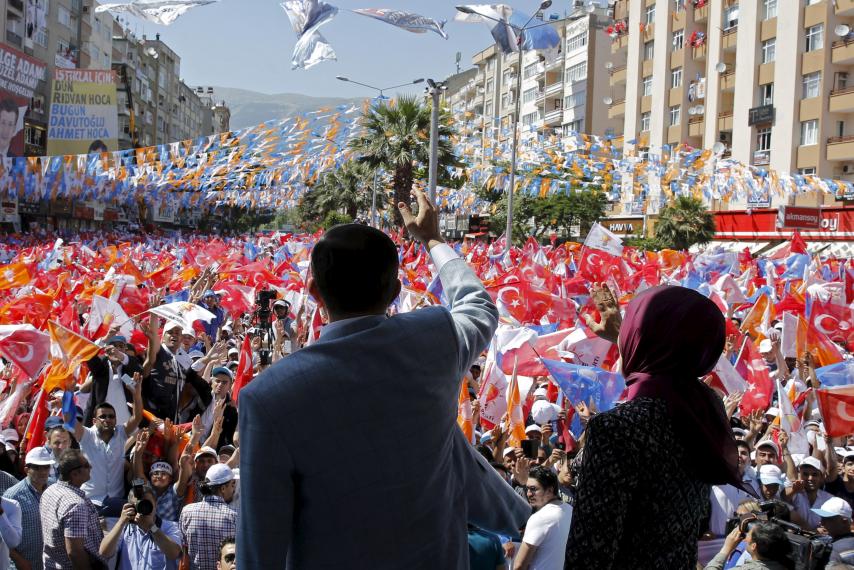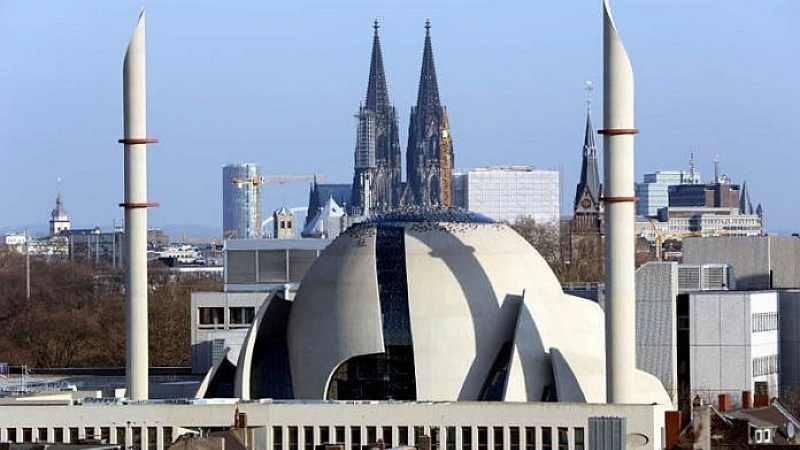Former DİTİB secretary general, Bekir Alboğa, has announced his intention to run for a seat in Turkey’s parliament in the upcoming June 2018 elections. Alboğa, who had led DİTİB as Secretary General from 2012 to 2017, is seeking a place on the AKP ballot, the party of Turkish President Erdoğan.
The case is particularly salient, as DİTİB – Germany’s largest Islamic association in terms of mosques affiliated – has often been accused of being too closely linked with the Turkish state and with President Erdoğan’s policies.
Backlash against Alboğa’s candidacy
The news of Alboğa’s wish for a greater role in Turkish politics – more particularly his intention to run for a seat in his family’s home town of Konya – have been widely perceived in Germany as further proof that DİTİB is nothing but Erdoğan’s long arm.
Serap Güler, State Secretary for Integration in the German Land of North-Rhine Westphalia, location of DİTİB’s German headquarters, castigated Alboğa’s decision: “Someone who really cares about integration and dialogue does not stand as a candidate for the AKP”, she asserted. This was echoed by other politicians, including the Green Party’s Volker Beck, who accused Alboğa of lacking a genuine commitment to democracy.1DİTİB changes course
DİTİB initially asserted that it was nothing but a “personal decision” on the part of Alboğa to stand for office in Turkey. Its officials were free to do as they pleased on their own time, the organisation stressed, adding that Alboğa’s political aspirations in Turkey would not compromise his work in Germany. Alboğa subsequently stated that he would step back from his DİTİB functions during his time in office.
As the media storm intensified over the following weeks, however, DİTİB finally took the plunge: On May 25, the organisation issued a press release stating that it would part ways with Alboğa. It was now deemed that running for a political party in Turkey while continuing to be affiliated in a high function with the religious association in Germany were “irreconcilable” jobs.2
Underlying dynamics
Whether DİTİB’s shift was purely due to media pressure or whether other factors also played a role in its reversal of position is not fully clear. Interestingly enough, just after Germany’s DİTİB had formally parted ways with him, it was also announced that Alboğa had failed to secure a spot on the AKP’s party list for the upcoming election, having apparently been sidelined in the process.
Initially, rumour had it that Alboğa’s foray into Turkish politics would be the prelude to a further realignment of the Turkish Muslim associational scene in Germany sought by President Erdoğan: Erdoğan is allegedly desirous to unite DİTİB with the Islam Council in Germany (IRD) and its biggest member, the Islamic Community Milli Görüs (IGMG). 3
This would represent the further consolidation of an Islamokemalist turn observable among German Muslim associations with Turkish roots: It would involve the merger of the formerly antagonistic Kemalist state Islam of DİTİB with the Islamist-leaning religious thought and practice of Milli Görüs.
Power struggles and infighting
Now, with Alboğa’s quest for an AKP mandate in Parliament thwarted, this theory looks somewhat less plausible. Instead, it could be surmised that Alboğa himself fell victim to power struggles within DİTİB and the Turkish state apparatus.
In any case, the chances of genuine dissent remaining within Germany’s DİTİB are somewhat slim. After all, the organisation was purged of a large number of functionaries deemed disloyal after the 2016 coup attempt. Yet this does not necessarily preclude factional infighting.






